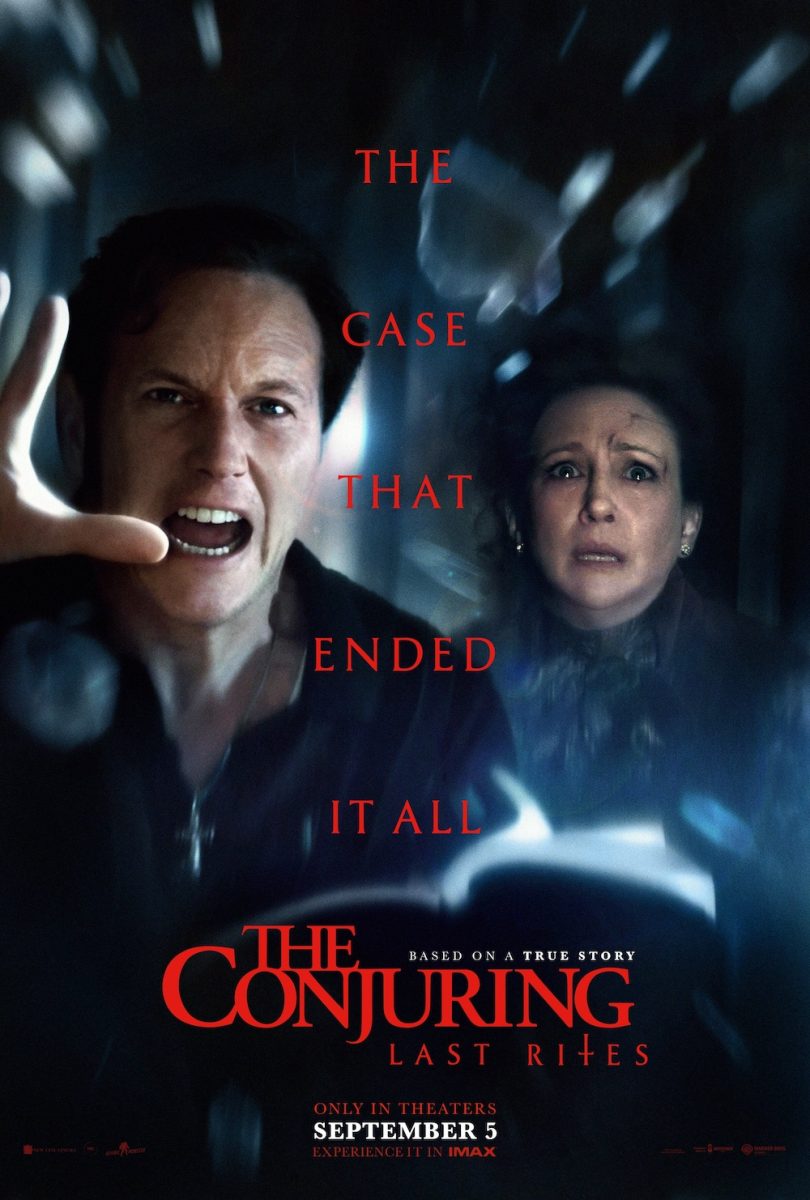The release of the Decemberists’ first piece of music in nearly six years with their single “Burial Ground,” has sparked an opportunity to reflect on previous albums. The Portland band is widely known for their unique storytelling abilities and is sometimes criticized for being almost “too wordy.” However, their combination of relentless sea-shanty influence and persistent harmonica makes them really special when observing the resurgence of folk-rock in the 2010’s.
Their 2011 record The King is Dead explores Americana and gives reference to various pieces of influential literature. I believe it’s definitely their most dynamic and conceptual album. The Decemberists like to take risks and The King is Dead is no exception.
The signature harmonica-usage in the band’s discography absolutely gets taken advantage of in their opening track, “Don’t Carry It All.” The song starts with a literally ear-piercing hum from a mouth harp, followed by a simple, but strong and consistent, drum-line.
While I would agree that lead singer and guitarist Colin Meloy tends to overuse poetic devices in his songwriting, I can’t help but be completely transfixed by this song, even with its verbosity: “Let every vessel pitching hard to starboard/Lay its head on summer’s freckled knees” is one of the lines that just really stuck with me. Meloy paints a vivid picture about shared burdens, working together and an appreciation for better days.
The book Infinite Jest was written by American novelist David Foster Wallace in 1996 and was the primary guidance for the Decemberists’ second—and my personal favorite—song on the record, “Calamity Song.” Meloy explained in a 2011 interview with NPR that, “the book didn’t so much inspire the song itself, but Wallace’s irreverent and brilliant humor definitely wound its way into the thing.”
Infinite Jest is about the effects of desiring constant entertainment and the often-overlooked peace that comes with boredom. “Calamity Song” parallels that idea in quite an artistic way, with lyrics like, “When you’ve receded into loam/And they’re picking at your bones/We’ll come home” symbolizing being one with the Earth by returning to the soil in death, putting an end to day-to-day busyness. Additionally, the music video for this track is brilliant, taking a 21-page excerpt from the book involving a tennis match and converting it into what Meloy and the band imagined it would be like as a movie, including countless references to Wallace’s work, since Infinite Jest takes place in a youth tennis academy.
The last song on the record, “Dear Avery,” is a beautiful lullaby-like love letter from a mother to her son at war: “There are times life will rattle your bones and will bend your limbs/You’re still far and away the boy you’ve ever been.” The singer expresses a lot of concern for the child’s wellbeing and desperation for him to be in arm’s reach again. “But you were my Avery and when you needed saving/I could just grab you by the nape of your neck” exemplifies how deeply the mother yearns for her son’s safety. This track is one of the more mellow songs on the album, with a dreamy slide guitar and echoey background vocals from singers Dave Rawlings, Gillian Welch and Laura Veirs.
Sometimes it’s hard to know what The Decemberists are trying to convey in their music. Meloy said in an NPR interview in reference to many of the lines in “Calamity Song”, “Well, it’s nonsense, isn’t it? Know what I mean? I guess, that’s the punchline,” But it’s no question just what exactly “Dear Avery” is about—with the uncertainty of the safety of her son at war and the mother’s worry, it’s all clear as day: “Please, Avery, come home.”
The Decemberists’ have rebranded time and time again, pumping out back-to-back albums that sound almost nothing alike. I recommend giving their newer stuff a listen as well. Their latest stuff is definitely different, straying away from their original folk roots and diving more into rock-pop. But nevertheless, the band has carried on with impressive lyricism and production. The King is Dead is a perfect record to welcome in the spring season and do away with the dreary frigidity that winter always leaves behind.









